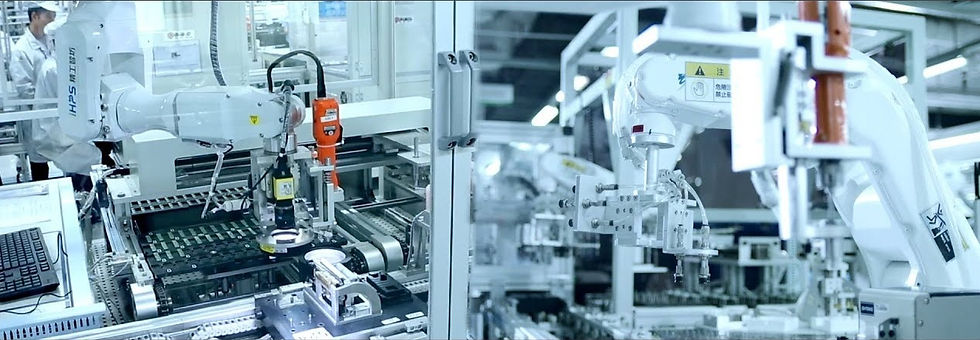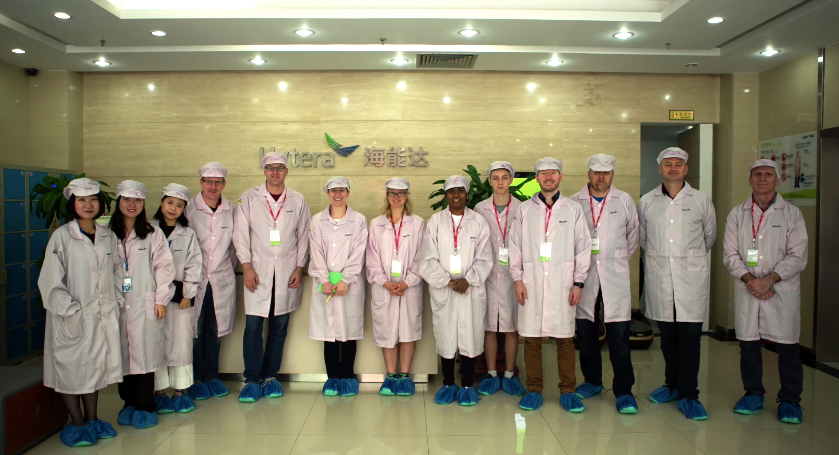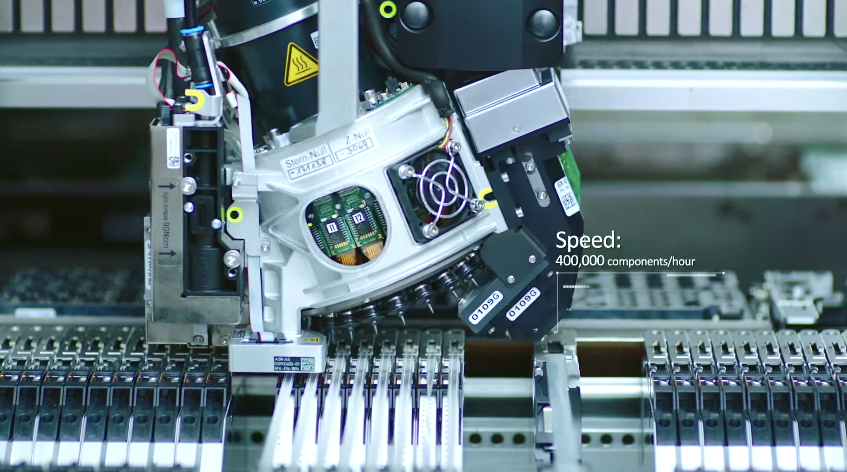The future of manufacturing: Industry 4.0, AI & automation
- May 3, 2021
- 3 min read
Updated: May 16, 2021
Hytera EMS––arguably one of the most technologically advanced factories in the world––is a tier-one factory producing products at high volumes for a range of clients. Hytera is laser-focussed on one thing: producing exceptionally high-quality products at scale.

In 2017 HardworX led a group of engineers, entrepreneurs, and startup founders to tour Shenzhen. The aim: to demystify hardware manufacturing in China. Visiting Hytera EMS was, put simply, mind-blowing for the tour group. For many, Hytera was easily the most sophisticated production environment they’d ever seen.
Through the adoption of Industry 4.0 and investment in intelligent production systems, Hytera has automated, not only the production floor but business systems and processes. This allows customers to trace their product through production in real-time. It also means that Hytera’s quality output is second to none.
Security
One of the first things that struck the group of makers: how seriously Hytera takes intellectual property.

The tour group were vetted before arrival to Hytera, with special permission granted to be filming for the documentary allowed. Permission was granted on the provision that the approved photographer had to remove his memory card at the end of the tour for the photographs, and video, to be vetted before they left. No other photos, or video, were allowed. The tour group even had to leave their cameras and smartphones behind.
‘The security consciousness is really reassuring as a potential client,’ said Simon Holmes A Court, Observant.
Importantly, Hytera only allowed the group to witness the production of their own product range and ensured that their client’s products were not visible to the tour group.
Automation
Hytera’s exceptional quality output at high volumes is a result of a deep focus on automation. In fact, Hytera’s ultimate objective is to have no humans in their factory in what they call a ‘generation five’ factory. In this kind of factory, there won’t even need to be any lights, because the factory will be fully automated.

‘The level of sophistication in their processes is very high. They’re a super-lean manufacturer and the level of automation is well-in-excess of anything else I’ve seen,’ said electronics engineer, Kemal Ajay.
The majority of Hytera’s systems are automated with the production line having state of the art equipment, including 3D scanning technology for in-process inspection of the SMT production line. The technology is so precise that it can even measure the thickness of solder paste and affirm an SMT line is performing correctly.
Hytera is proud to produce their own brand of products, which mainly consist of two-way-radios. The products are produced on an automated line. The line, at that time, was 75% run by robotics, however, Hytera’s goal was to make the line fully automated.
Incredibly, Hytera’s automated lines are also fully flexible. This means the line is able to handle multiple products at once. At most factories production lines are configured for one product at a time; they simply do not have the technology for multi-configuration. At Hytera, however, the functionality enables multiple products to be on the same line, at the same time.
In order for this to run smoothly, products are branded with barcodes. The robotic set-up scans the barcode, identifies the precise product, and carries out the precise assembly or test procedure for that specific product configuration. The machines are constantly changing and reacting to the needs of the facility. This results in an exceptionally efficient process allowing the factory to produce at a scale, unlike most others.

When it comes to testing, Hytera is fastidious. Rigorous testing allows them to provide exceptional quality with a very low failure rate. The testing regime is done early and throughout the various stages of the process. By focusing on the elimination of defects at the point of occurrence, Hytera avoids the compounding effect of defective parts making their way into the downstream production process where the cost of rework will be higher. This avoids costly errors and means that every product they produce meets high standards.
To learn more about Hytera EMS watch the full documentary and learn more about automation and artificial intelligence.
The future of manufacturing: AI and automation
Hytera EMS gave a good example of what AI and automation look like in the future. At Hytera, some of the lines can only be attended to by highly-skilled engineers and technicians rather than production operators. This speaks to how complex and sophisticated their automation lines are. It also means that, in the future, demand for human workers is going to change dramatically.
In terms of quality, automation can only be a good thing. Done right, automated production lines can have a high level of accuracy, and achieve better than human quality. The future of production, then, is likely to be efficient, accurate, and of an exceptional standard.
To learn more about Hytera EMS watch the full documentary and learn more about automation and artificial intelligence.




Comments